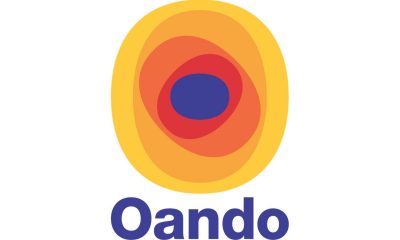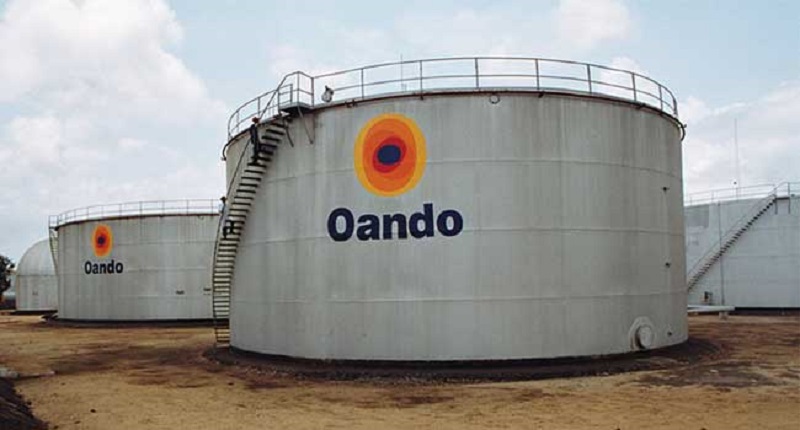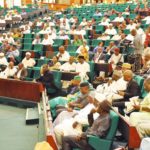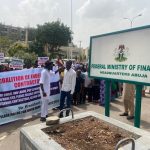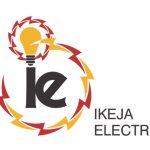Economy
Oando Eyes Cost Optimization, Operational Efficiency, Others in 2025
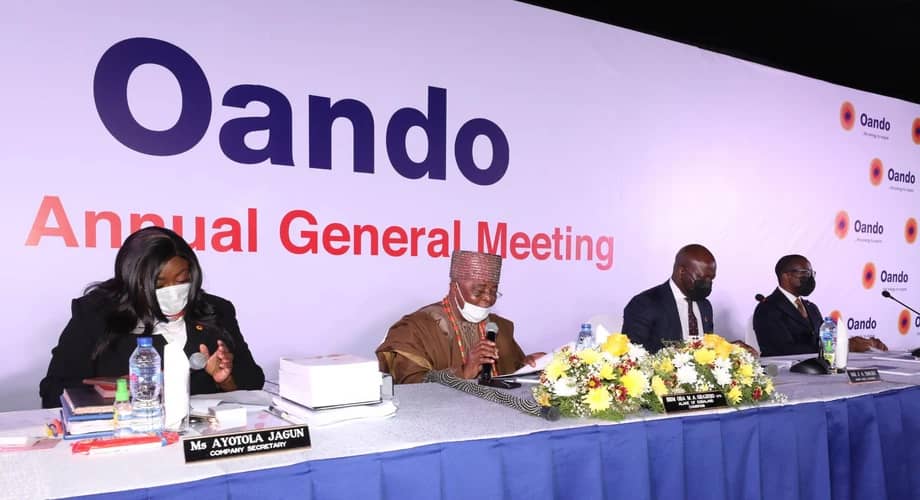
By Aduragbemi Omiyale
In 2025, Oando Plc, a major player in the Nigerian energy sector, is looking to intensify its cost optimisation strategy to deliver more value to its shareholders.
Oando, headed by Mr Wale Tinubu, believed to be a relative of President Bola Tinubu, is listed on the Nigerian Exchange (NGX) Limited and the Johannesburg Stock Exchange (JSE).
A few days ago, the company released its financial statements for 2024 and the performance for the year was impressive as the revenue improved by 45 per cent to N4.1 trillion from N2.9 trillion in FY 2023.
In the same vein, the net profit went up by 9 per cent to N65.5 billion, as the average crude oil production grew marginally to 23,911 barrels of oil equivalent per day (boe/d) from 23,258 boe/d in 2023.
Mr Tinubu expressed his joy over this development, saying the organisation plans to achieve more in the currency fiscal year.
“2024 was a year of transformation for Oando, the key highlight being our successful acquisition and subsequent integration of NAOC Ltd, which significantly enhanced our production capacity, attaining peak operated production of 103,206boepd and net entitlements of 45,000 boepd.
“Despite a challenging operating environment, we achieved a 45% increase in revenue to ₦4.1 trillion, reflecting the strength of our business model, and a 9% rise in profit after tax to ₦65.5 billion, notwithstanding the costs associated with the onboarding of NAOC,” he said.
“In 2025, our priority shall be to drive cost optimization, operational efficiency, streamline processes, enhance procurement, and leverage technology to improve productivity across our operations. In parallel, we will intensify efforts to boost production through the dual approach of rig-less and workover initiatives while executing an aggressive drilling program across three rig lines.
“Simultaneously, in collaboration with other stakeholders, we are proactively tackling above-ground security challenges by implementing a revamped security framework that integrates advanced surveillance technology and intelligence-driven initiatives to curb the perennial, unnecessary, and unjustifiable theft of oil to ensure the long-term integrity of our vast network.
“As we look ahead to an exciting and successful 2025, we recognize that achieving our goals requires the unwavering support of our host communities and partners. Through extensive engagement, we will foster a collaborative ecosystem that not only secures our operations but also drives shared prosperity and sustainable development for all,” Mr Tinubu stated.
Economy
NASD OTC Exchange Closes Lower for Fifth Consecutive Day

By Adedapo Adesanya
The NASD Over-the-Counter (OTC) Securities Exchange suffered its fifth decline for this week on Friday after it closed lower by 0.09 per cent, with the Unlisted Security Index (NSI) down by 8.91 points to 3,639.10 points from 3,642.22 points and the market capitalisation declining by N1.86 billion to end N2.177 trillion compared with the previous day’s N2.179 trillion.
Yesterday, the bourse recorded three price losers led by NASD Plc, which crumbled by N4.00 to close at N55.00 per share compared with the previous day’s N59.00 per share, as FrieslandCampina Wamco Nigeria Plc depreciated by 68 Kobo to N66.23 per unit from Thursday’s closing price of N66.91 per unit, as Mass Telecom Innovation Plc lost 4 Kobo to end at 40 Kobo per share versus the preceding day’s 44 Kobo per share.
On the flip side, there were two price gainers led by Central Securities Clearing System (CSCS) Plc, which added 21 Kobo to close at N40.81 per unit compared with the previous session’s N40.60 per share and UBN Property Plc, which improved by 10 Kobo to N2.09 per share from N1.99 per share.
During the session, the level of activity increased as the the volume of transactions surged by 255.7 per cent to 10.2 million units from 2.9 million units, the value of trades soared by 122.0 per cent to N189.5 million from N85.4 million, and the number of deals increased by 22.5 per cent to 49 deals from the previous day’s 40 deals.
When the bourse ended for the day, CSCS Plc remained the most traded stock by value on a year-to-date basis with 10.5 million units worth N427.7 million, trailed by FrieslandCampina Wamco Nigeria Plc with 893,553 units traded for N60.1 million, and MRS Oil Plc with 291,801 units valued at N58.3 million.
However, CSCS Plc took over as the most active stock by volume on a year-to-date basis with 10.5 million units old for N427.7 million, as Geo-Fluids Plc slipped to second place with 7.7 million units worth N52.4 million, and Mass Telecom Innovation Plc occupied the third spot with 6.2 million units transacted for N2.5 million.
Economy
Naira Value Improves to N1,421/$1 at Official Market

By Adedapo Adesanya
The Naira appreciated against the US Dollar by 44 Kobo or 0.03 per cent in the Nigerian Autonomous Foreign Exchange Market (NAFEX) on Friday, January 24 to sell for N1,421.63/$1 compared with the N1,422.07/$1 it was traded on Thursday.
This was buoyed by increased FX inflows from exporters as well as sustained Dollar volume from non-bank corporate, individual and other sources.
However, the Naira lost N15.61 against the Pound Sterling in the same market window yesterday to quote at N1,924.17/£1 compared with the previous day’s value of N1,908.56/£1 and depreciated against the Euro by N3.60 to finish at N1,669.56/€1 versus the N1,665.96/€1 it was exchanged a day earlier.
At the GTBank forex counter, the Nigerian currency traded flat against its American counterpart at N1,430/$1, and also maintained stability against the greenback at the parallel market segment during the session at N1,485/$1.
Meanwhile, the cryptocurrency market took a hit as slowdown occurred, explained by large holders taking profits.
The market had seen a short lived boost after Japanese intervention sent the Yen surging against the US Dollar, a move some saw as a necessary step toward resuming a bull market in crypto.
However, investors took profit with Dogecoin (DOGE) down by 0.8 per cent to $0.1240, and Cardano (ADA) down by 0.7 per cent to $0.3585.
Further, Solana (SOL) dropped 0.6 per cent to sell at $126.89, Litecoin (LTC) depreciated by 0.5 per cent to $68.42, and Binance Coin (BNB) fell by 0.1 per cent to $890.13.
But, Ripple (XRP) appreciated by 0.4 per cent to $1.91, Ethereum (ETH) rose by 0.3 per cent to $2,953.72, and Bitcoin (BTC) grew by 0.1 per cent to $89,477.58, while the US Dollar Tether (USDT) and the US Dollar Coin (USDC) traded flat at $1.00 each.
Economy
House of Reps Minority Caucus Identifies Alterations in Gazetted Tax Laws
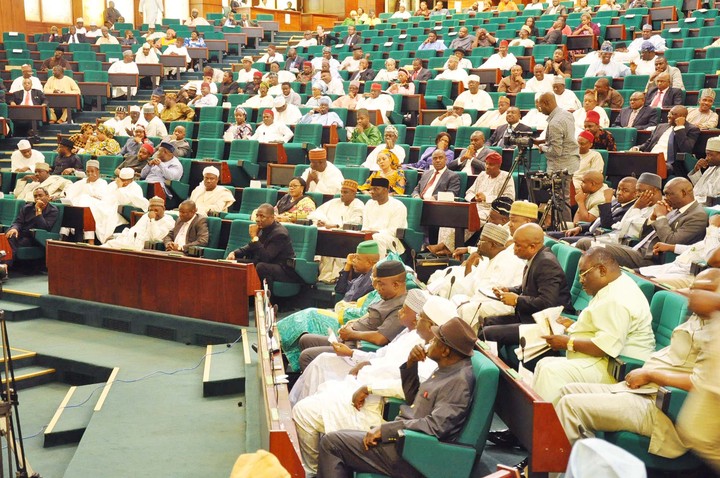
By Modupe Gbadeyanka
The House of Representatives Minority Caucus Ad-hoc Committee on Tax Laws on the Allegations of Illegal Alterations on the Gazetted Tax Laws has released an interim report on its findings, accusing the executive arm of government of removing and inserting some items in the bills passed by the parliament.
The chairman of the 7-man panel, Mr Afam Victor Ogene, in the report released on Friday, said the laws were altered after they were transmitted to the executive by the National Assembly for assent by President Bola Tinubu.
Recall that a member of the green chamber of the parliament, Mr Abdulsamad Dasuki, raised an alarm on the discrepancies in the gazetted version and the one passed by the legislative arm of government.
The Minority Caucus of the House of Reps, headed by Mr Kingsley Chinda, in a statement on December 28, 2025, vowed to “unconditionally protect the independence of the legislature and our democracy.”
It then constituted the committee on January 2, 2026, to get to the roots of all the issues surrounding the scandal.
The next day, the lower chamber of the National Assembly, through its spokesman, Mr Akintunde Rotimi, released a statement announcing that the Speaker, Mr Abbas Tajudeen, had directed the release of the four tax reform Acts; The Nigeria Tax Act, 2025; The Nigeria Tax Administration Act, 2025; The National Revenue Service (Establishment) Act, 2025; and The Joint Revenue Board (Establishment) Act, 2025, duly signed into law by the President, for public record, verification, and reference.
The statement further added that the Speaker has also ordered an internal verification and immediate public release of the Certified Acts to eliminate doubts, restore clarity, and protect the sanctity of the legislature.
In its report yesterday, the panel said it discovered some alterations in the gazetted version, noting that, “given the anomalies, illegalities, and impunity observed, which clearly undermine the National Assembly’s constitutional powers and democracy, the committee finds the current evidence sufficient to warrant a deeper investigation. This will ensure accountability for the affront against the legislature.”
“To achieve this, the committee respectfully requests an extension to conduct a more thorough examination of the matter,” it added.
-

 Feature/OPED6 years ago
Feature/OPED6 years agoDavos was Different this year
-
Travel/Tourism9 years ago
Lagos Seals Western Lodge Hotel In Ikorodu
-

 Showbiz3 years ago
Showbiz3 years agoEstranged Lover Releases Videos of Empress Njamah Bathing
-

 Banking8 years ago
Banking8 years agoSort Codes of GTBank Branches in Nigeria
-

 Economy3 years ago
Economy3 years agoSubsidy Removal: CNG at N130 Per Litre Cheaper Than Petrol—IPMAN
-

 Banking3 years ago
Banking3 years agoSort Codes of UBA Branches in Nigeria
-

 Banking3 years ago
Banking3 years agoFirst Bank Announces Planned Downtime
-

 Sports3 years ago
Sports3 years agoHighest Paid Nigerian Footballer – How Much Do Nigerian Footballers Earn



